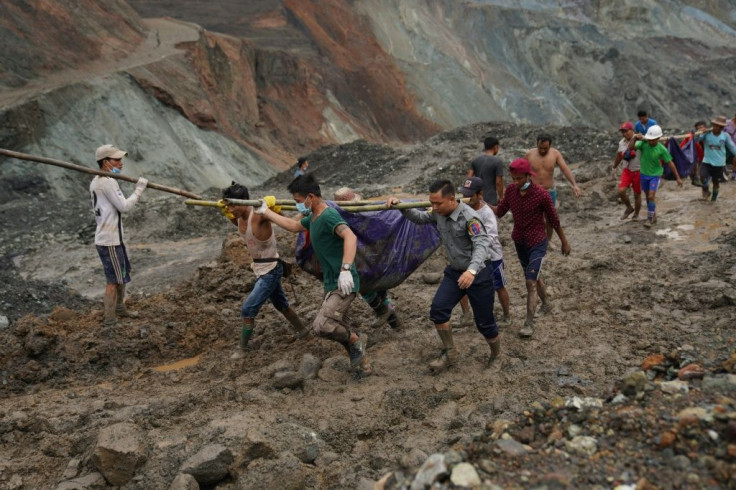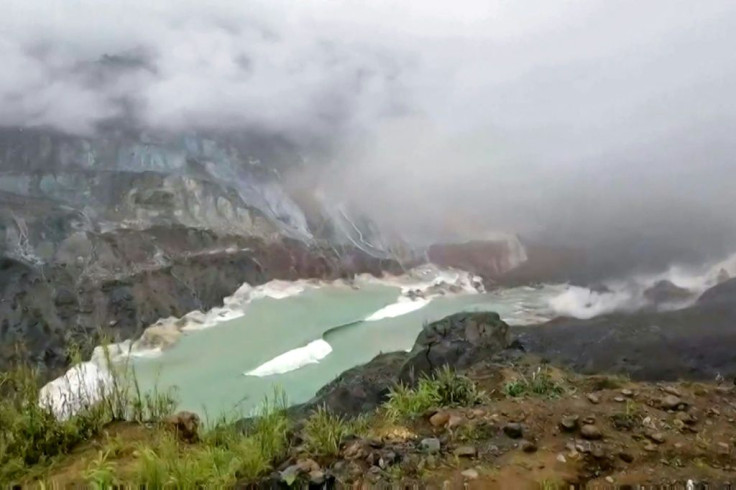More Bodies Found At Myanmar Jade Mine Disaster
Rescuers Friday pulled several bodies from the scene of a landslide which killed over 160 jade miners in northern Myanmar, many of them migrant workers seeking their fortune in treacherous open-cast mines near the China border.
The disaster -- the worst in memory to strike Myanmar's notoriously dangerous jade mines -- ocurred on Thursday when a hillside collapsed in heavy monsoon rains.
A deluge of mud smothered workers scouring the land for the precious stone -- a moment of horror captured on cameraphone footage.
A woman cried over the body of her son who lay in the grim line-up of bloodied corpses retrieved from the mud, his clothes ripped off by the force of the landslide.

"The search and rescue missions continued today and we now have 166 bodies," the Myanmar Fire Services Department said in a Facebook post, raising the overnight toll by four.
The area is close to the Chinese border in Kachin state, where billions of dollars of jade is believed to be scoured each year from bare hillsides by poor migrant workers seeking to strike it rich.
As photos of the dead circulated on social media Facebook users began to identify workers hundreds of miles from home, leaving moving tributes to friends and family members.
"Please bring my father back," said Hnin Wati. "A daughter's heart is breaking."

Another, from a former miner, affectionately remembered one of the dead for his "kind-heart" and generosity with his food during tough shared times on the mountainside.
Myanmar is one of the world's biggest sources of jadeite and the industry is supercharged by demand for the green gem from neighbouring China.
Some jade brokers suspended online auctions on Thursday, and promised to donate money to their friends who were killed.
Scores of miners die every year in landslides and other accidents on unstable, over-excavated mountainsides.
They are often from impoverished ethnic minority communities, looking for scraps left behind by big firms.
Low-quality stones can be exchanged for food or sold for $20 to waiting brokers.
"Many of them (the dead) are Rakhine," Phon Graing, a Hpakant township official told AFP, referring to the ethnic group who live hundreds of kilometres away at the other end of the country, and who are among Myanmar's poorest communities.
"But we don't have specific numbers yet."
© Copyright AFP 2024. All rights reserved.




















